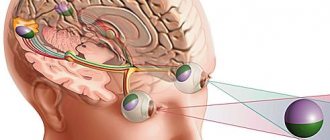Tears have always been considered the prerogative of women. After all, representatives of the fairer sex are more emotional than men, and they take many things too close to their hearts. But doctors and psychologists do not see anything bad in the tears of men. By giving free rein to tears, any person, be it a man or a woman, can get rid of negativity and get emotional release. It's another matter if you start to get upset and cry over trifles. Such outbursts of emotions can work against you.
Society, as a rule, does not like whiny people. They are considered childish and emotionally unstable. This is why excessive tearfulness can and should be fought. The main thing is to understand the reasons for its occurrence.
Why do people cry
Sometimes an unstable emotional state is a consequence of thyroid disease. In this case, you need to be examined by a doctor and undergo a course of treatment. The main cause of tearfulness in women, for example, is an increased level of prolactin in the blood. This hormone is responsible for the production of breast milk and the production of tears. Its excess can cause irritability and nervousness. To avoid this, you need to be examined by an endocrinologist.
Some people are naturally emotional; their desire to cry for any reason does not depend on physical illness. This is simply an individual personality trait. Such people will never be able to change completely, since increased sensitivity is an innate property of their nervous system.
Another reason for tearfulness is a person’s inability to quickly adapt to sudden changes in his life. It doesn’t matter whether the changes are bad or good - any change in the surrounding reality can cause stress and a desire to cry in such people.
How to stop crying at the wrong time
If your tearfulness is of a psychological rather than physiological nature, it will be much easier to deal with it. You just need to force yourself to switch your attention and take your mind off the object that irritates you.
As soon as you feel tears welling up in your eyes, start breathing quickly. At the same time, try to avoid taking deep breaths so as not to cause an attack of dizziness. Do this breathing practice until you relieve nervous tension. If you find drinking water nearby, take a few sips and think about something pleasant.
Before you cry, imagine a cloud and study it carefully. Then imagine how it will rain down on the earth as a blessed rain. This simple training is recommended by many psychologists. Its main task is to stabilize a person’s emotional state.
Sometimes tears are the result of mental trauma. In this case, there is no need to restrain them. By throwing negative emotions out, you will protect your body from diseases and premature aging.
Nervousness is a natural reaction of the human body to unknown or frightening situations; This unpleasant emotional state has a spectrum of manifestation from mild to extensive feelings of excitement and internal trembling in the body. Although a certain amount of anxiety has a positive impact on a person's overall performance, the condition becomes a problem at the point where it begins to slow down thoughts and disrupt normal daily life.
Irritability is an increase in psycho-emotional excitability, to a certain extent, a tendency to negative reactions towards oneself and the people around you. A person becomes hot-tempered, aggressive, unfriendly, and has a pessimistic view of certain things (even if the outburst of emotions is not caused by them).
The characteristics of the behavior of an irritated person depend on the individual characteristics of the structure of the nervous system and are predetermined by the living environment: factors such as unsettled personal life, lack of financial wealth, exacerbation of a chronic disease, difficulties at work.
Tearfulness is a high predisposition to react emotionally to various circumstances, accompanied by crying to any minor event (even of a positive meaning), which indicates the presence of a psycho-emotional disorder and is caused by neurological instability. Most often, women and children are obsessed with tearfulness. A “deplorable mood” is accompanied by numerous other symptoms, such as depressed mood, drowsiness, apathy, reluctance to communicate; in children, the condition can develop into aggression and rage, requiring increased attention from adults.
Ways to get rid of tearfulness
How to get rid of tearfulness? If the problem is psychological rather than physiological, it will not be difficult to solve. To do this, you can use the help of professionals, but self-training will also have a positive effect.
Women who are prone to crying over trifles must learn to switch their attention from negative to positive. There should always be a pleasant memory in stock that will help distract you from the irritant.
At the first sign of tears welling up, you should try to breathe frequently, but shallowly. This will help you concentrate and stop the process. It is important to avoid taking too deep breaths, as this can lead to dizziness. Breathing practice should be continued until nervous tension is relieved. It doesn't hurt to take a few sips of cool water, which will help distract you from unpleasant thoughts.
Some psychologists recommend a simple but very effective technique. To stop tears, you need to imagine a soft cloud. In this case, you will need to examine it carefully, and then watch in your thoughts as it pours with warm rain. As surprising as it may be, such training is really effective and works well. Many experts recommend this particular exercise to get rid of excessive tearfulness. The result of this work is the stabilization of the psycho-emotional state.
You need to learn to restrain your emotions, but sometimes, when serious troubles happen in life, it is tears that help relieve stress. When negativity accumulates in the body and has no way out, it is very bad and even dangerous for the body. Representatives of the fair half of humanity especially suffer from this, since depression, neuroses and stress cause premature aging of the body and various diseases.
If excessive tearfulness greatly interferes with life, then you need to learn to deal with this problem. To begin with, a woman should have several funny and kind memories in her arsenal, which in difficult times will act as a lifeline.
If the situation is completely advanced, it is quite possible that you will no longer be able to do without the help of a specialist. An experienced psychologist will help you understand yourself, get rid of depression and survive severe stress.
It is quite possible that the cause of increased tearfulness is internal fears and anxieties that live in the subconscious, but at the same time have a negative impact on the psycho-emotional state.
Experts recommend not only psychological training, but also procedures that will help improve health. For example, you can treat your nerves with a balanced vitamin-mineral complex, because a lack of certain elements negatively affects the functioning of the nervous system, so a person becomes more tearful. However, it is worth remembering that taking medications is possible only after preliminary consultation with a professional who can choose the best option for a particular case and determine the most appropriate dosage.
Women who often cry for no reason or no reason should include more fresh vegetables in their diet. In addition, foods high in ascorbic acid, B vitamins, as well as vitamin A and E will be useful. To strengthen the nervous system and get rid of stress, you need to spend enough time in the sun.
Tearfulness is an emotional state that a person faces throughout his life. Let's consider the main causes and symptoms of tearfulness syndrome, methods of treatment and prevention.
Tears are a normal reaction of the body to various factors. The tear reflex manifests itself in childhood, when a child expresses his feelings and emotions with the help of tears. That is, crying can be called a physiological reaction of the body to certain stimuli, causing special facial expressions. Tears, in turn, are an excellent emotional release that allows you to get rid of emotional pain.
Unlike crying, tearfulness is excessive tearfulness for any reason, even the most insignificant. This could be a touching film, remarks from a boss or, conversely, praise, excessive attention from strangers, and much more. But the most unpleasant thing is that it is not always possible to control the urge to cry. If short-term tears cause a desire to console, then constant tearfulness causes fatigue and irritation in others.
If tearfulness occurs for unknown reasons, then this may indicate various disorders and diseases of the body. Due to regular tears, mental health suffers significantly, since crying is accompanied by aggression, bad mood, irritability and even drowsiness. In this case, examination and treatment, both medicinal and psychological, are required.
Tears are a common reaction to some sad event; increased tearfulness is a symptom of mental or physical exhaustion. In the differential diagnosis, it is necessary to exclude brain diseases:
- multiple sclerosis,
- bulbar palsy,
- cerebral atherosclerosis.
In any case, a neurological examination is necessary. As a rule, in this case, along with drug therapy, psychotherapy is prescribed.
What does it look like from the outside
Nervousness in children manifests itself in whims - the child demands that his requests be satisfied immediately: buy the toy he likes, a delicacy, an item. In adults, this condition can develop due to minor failures on the personal front or at work, or against the background of computer addiction - an attempt to distract from the game causes anger (which means the person suffers from gambling addiction).
Knowing that another person is predisposed to tearfulness and irritability, it becomes necessary to choose words during communication, since any carelessly spoken remark can upset the interlocutor, causing a psycho-emotional outburst.
In some cases, from the outside it may seem that a person began to cry for no reason, but the basis for such a reaction may be the memory of certain events.
Irritable people often do not control their emotions: later they may regret their words and actions, but emotional arousal occurs in one moment - the irritant can be criticism, comment or expression of the opinion of another person.
Complex of provoking causes and factors
Often the development of nervousness and irritability is caused by basic mental disorders - social anxiety or. Quitting the abuse of strong and narcotic substances can also provoke this condition.
Neurological pathologies, such as previous illness, exacerbations of chronic diseases and taking certain groups of medications that cause irritability as a side effect, contribute.
Although, of all the reasons why the nervous system malfunctions, the leading ones are difficulties in professional activities and personal life. Stress at work, peer pressure, uncertainty in relationships, parenting issues - all this makes a person experience psycho-emotional stress.
In children, nervousness occurs against the background of pathologies such as schizophrenia, autism, and impaired production of growth hormone.
In men, irritability and aggression are often caused by an acquired pathology characterized by dementia, as well as schizophrenia, depression, alcoholism, drug addiction, and disturbances in the production of sex hormones and biologically active substances produced by the thyroid gland.
In women, nervousness and excessive irritability can be caused by gynecological disease, endocrine system disorders, hormonal imbalance, hyperfunction of the thyroid gland or menopause, mental exhaustion, as well as lack of fulfillment in intimate terms.
Unpleasant sensations can be observed as a result of emotional stress, being in a stressful situation, with pathological changes in the brain, due to hormonal imbalance.
Concomitant symptoms provide a chance for a correct diagnosis
Severe nervousness and aggression, as a symptom, do not always develop independently - it can be complicated by other phenomena:
- fatigue;
- frequent;
- redness of the facial skin;
- nausea, which often occurs after being in transport.
Severe nervousness and anxiety, as a symptom, manifests itself as follows:
Relaxation methods
Yoga, meditation, and auto-training will help you cope with anger and irritability.
People who practice Eastern techniques for stabilizing mental balance do not experience nervousness and irritation. At the peak of anger, it is advisable to rinse your face with cold water, drink a glass of a cooling drink or take a contrast shower - this will allow you to get rid of the accumulated negativity and solve the problem calmly.
If anger arises due to a simple misunderstanding of the interlocutor, it is important to change the direction of thinking and understand that the opinions of two people do not have to coincide.
If your emotional state contradicts active sports (depression, high predisposition to panic attacks), a relaxing massage will help. The use of a decoction of medicinal herbs will provide a sedative effect, but the use of any medication must be agreed with a doctor.
To combat increased excitability and achieve stress resistance, you need to learn special breathing exercises. The fact that irritation occurs when the trouble that has happened is given importance is a fact: at the moment of anger, you need to “reduce” the level of significance of force majeure and it will be easier to find a way out of the situation.
Lifestyle
To eliminate nervousness, it is necessary to reconsider your attitude towards others; if there is such a need, then you need to change your place of work.
Normalizing your sleep schedule will increase stress resistance, stabilize hormonal levels, and stopping the consumption of strong and energy drinks will prevent the accumulation of toxins in the body tissues.
Anger can be made a motivator for sports activities, where the release of energy is directed in the right direction, and not at people around.
Diet, nutrition
One of the reasons for the development of aggression and anger is a deficiency of vitamin B. You can compensate for the missing element through proper nutrition - it is important to include fermented milk products, nuts, buckwheat, beef liver, and legumes in the menu.
To increase the level of hemoglobin in the blood, you need to eat apples, spinach, and pomegranate.
If you suffer from insomnia
Two pathological phenomena - insomnia and nervousness - contribute to the development of each other. To treat insomnia caused by neuroticism, the doctor prescribes sleeping pills. They are available by prescription only.
Aromatherapy is an effective way to calm down and fall asleep: by inhaling vapors of medicinal herbs or essential oils, you can stabilize the psycho-emotional background.
Sleep deprivation
Unfortunately, as people age, they increasingly experience insomnia and other sleep cycle disorders. However, experts strongly recommend getting good rest to maintain the health of the body's key functions. However, some of us are so busy working and relying on caffeinated drinks that we don't pay attention to the early symptoms of a sleep disorder. The good news is that insomnia and spontaneous awakenings in the middle of the night can be overcome, although it will take some effort.
How to help a child?
In children, nervousness is treated by eliminating intellectual stress, normalizing the quality of nutrition and duration of sleep. It is necessary to find an optimal and useful hobby for your child, replacing constant stay at the computer with spending time in the fresh air, active games, and traveling.
Since medications are used only in cases of severe aggression, an alternative would be evening water procedures in combination with drinking warm milk - this calms and relaxes the child’s body.
A nervous system disorder caused by childhood loneliness is a signal for parents: make sure that the child does not feel like an outcast and is able to establish friendly relationships.
Normalization of the condition during pregnancy
Tearfulness and tearfulness during pregnancy are a common condition. For a pregnant woman, proper nutrition, walks in the fresh air and aromatherapy are extremely important.
Traditional treatment, and especially drug treatment, is dangerous for the health of the expectant mother and the child’s body.
The use of mint candies will bring benefits - it is also an antiemetic.
A special situation requires restriction from negativity - a woman can make a list of things and events that give her pleasant emotions, and gradually, on a daily basis, carry them out.
In some cases, it is difficult to prevent the development of nervousness, because sometimes irritants act spontaneously, for example, in the sphere of work or personal life. Then you can help yourself through auto-training, the practice of positive thinking, breathing exercises and massage.
If there is an unresolved problem, then it is advisable to make an appointment with a psychologist: this will allow you to avoid mental anxiety and related phenomena.
It is important to undergo a medical examination in a timely manner and eliminate pathological processes at an early stage of their development.
Tears are a natural reaction to various life factors. Even in infancy, the child begins to actively demonstrate a “tear reflex,” thereby calling on his mother (father, grandmother, grandfather) to communicate and express love. In this way, the baby says that he is cold, wants to eat, or simply wants to hear his own voice. But not only children can express their feelings with tears - and adults often give them free rein. All people sooner or later experience tearfulness, the reasons for which can be different - both from resentment and grief, and from happiness and joy.
A person cries not only because he wants to (for example, from watching a love melodrama or from a misfortune that has occurred in the family), but also for physiological reasons. Tears are a manifestation of emotions, a kind of release for the body. A person after a good “shake-up” (namely, after crying) feels much better. According to many psychologists, crying is necessary. Tears help you relax and look at life with a new “fresh” look. How often do young girls who have been abandoned by their boyfriends cry into their pillows all day long? Let us note that in the morning they already get up with completely different thoughts and emotions. If you constantly suppress the release of emotions, the nervous system can become unstable. So sometimes a person simply has to give vent to tears so as not to harm his health.
But there is no need to cry excessively: a constantly crying person not only does not evoke pity, but also annoys those around him. In this case, tearfulness, the causes of which are completely incomprehensible, is nothing more than a serious illness. A person’s mental health can suffer greatly if endless tears are accompanied by irritability and aggression. Such a personality needs to be treated, no matter how trivial it may sound, but this requires a course with a psychologist and medication.
Tearfulness, the causes of which are ordinary life situations, may not at all mean that the person is suffering. Most people, especially women, exhibit this condition quite often. Men, unlike the fair sex, due to their upbringing, cannot cry. This behavior is considered wrong, tears prolong life, they are capable of energy. But from birth, boys are told that they should not cry, and that they must control all their emotions. Men who do not cry are more likely to experience bad mood, nervousness and apathy. Everyone needs to shed tears, roar, and sob, regardless of a person’s age and gender, but only in moderation, and only correctly—quietly, calmly, and in exceptional moments.
Excessive emotions can accompany both adults and young children. Most often, a woman becomes especially tearful when she is carrying a baby under her heart. Crying during pregnancy is quite normal; the hormones of the expectant mother are constantly in a rapid rhythm, forcing the woman to shed tears for any reason.
But if an ordinary adult’s eyes are constantly “wet” due to a mental disorder, then this must be dealt with. And a professional psychologist or neurologist will help here, who will answer the exciting question of how to get rid of tearfulness. Usually, treatment is prescribed in the form of taking tinctures and herbs, normalizing nutrition, and the “patient” is tuned to positive emotions. It is necessary to surround yourself with joyful and cheerful emotions, to forever get rid of the negative interference of events or third parties. And then tearfulness, the causes of which come from outside, can leave him for a long time.
A person who does not show emotions is not able to empathize and love. Such a person lacks common sense and is more like a robot.
An unbalanced emotional state often causes tearfulness. There are many reasons why tears appear. A child expresses his emotions through the tear reflex, and at an older age they help reduce mental pain. However, excessive tearfulness not only interferes with the person himself, but also brings some irritation to the people around him. Therefore, if you notice such symptoms, you need to identify the cause and eliminate it. Today we will figure out what causes tearfulness, what are its signs and how to deal with it.
Trapped in emotions
Frequent tears for no apparent reason may be a sign that you are torn apart by “stuck emotions” that trail behind unresolved situations from the past. This may be due to negative and traumatic events that happened a long time ago, but still have power over you. This emotional baggage causes you to make incorrect assumptions, which affects your actions and distorts your perception of reality. Also, “stuck emotions” contribute to the generation of anxiety, depression and other forms of mental illness.

Sometimes, for reasons of unknown origin, emotions are stored in a person's soul for a long time after the traumatic event occurred. They prevent you from enjoying life and moving on; they constrain your body and tie it to past experiences. In fact, this negativity is locked in your body, as if in a trap, from where there is no way out. It is not possible to get rid of stuck emotions without the help of a professional. And if you leave everything as it is, you will be doomed to live under the yoke of colossal mental and physical stress.

“Olga” from the series of the same name: the tragic fate of actress Yana Troyanova
Sometimes we wear a bra incorrectly: ways that are harmful to health
The star of the series “Sultan of My Heart” spoke about the choice of his future wife

Symptom of tearfulness
People who regularly notice the following are susceptible to increased tearfulness:
- excessive irritability;
- constant fatigue;
- nervous state;
- increased drowsiness;
- apathy;
- sudden changes in mood;
- lack of sleep;
- touchiness.
The unpleasant condition is accompanied by redness of the face, increased sweating, and increased heart rate. Some, as a consequence of tearfulness, experience headaches and increased body temperature. One of the main symptoms that causes tearfulness is a hormonal imbalance in the body or problems with the thyroid gland. Therefore, panic attacks and neurological diseases often result from this condition. In a woman, the cause of excessive tearfulness can even be excess weight acquired through hormonal disorders.
But even in absolutely healthy people, you can notice tears when you are in a bad mood, stressed or overworked. Some people experience tearfulness from childhood and persist throughout their lives. This is an individual personality trait.
What tests and examinations can a doctor prescribe for irritability?
In case of irritability, the psychiatrist does not prescribe tests; a doctor of this specialty carries out diagnostics through interviews and various tests.
The psychiatrist listens carefully to his patient, asks clarifying questions if necessary, and based on the answers, makes a diagnosis and prescribes the necessary treatment. To assess brain function, a psychiatrist may prescribe electroencephalography (make an appointment)
and the evoked potential method.
To assess the state of various brain structures, their connections and interactions with each other, the doctor may prescribe tomography (computed tomography, magnetic resonance imaging (recorded)
, gamma tomography, or positron emission tomography).
Before use, you should consult a specialist.
Excess and accumulation of pain associated with worries and difficulties in life can lead a woman to despair and a depressed state. Often tears free the body from such a condition. Uncontrollable tearfulness can be caused not only by the physiology of the body, but also by certain problems in the body. Tearfulness is often accompanied by additional symptoms (apathy, irritability, frequent mood swings). Such changes in the emotional background require medical consultation.
Causes of tearfulness
Tears help you quickly get emotional release. If this does not happen too often, then this is quite normal, but if you notice their appearance every day for no reason, pay attention to it. Among the factors that cause tears, the main ones are:
- negative memories, the appearance of emotional shock, stressful conditions;
- hormonal imbalance in the body;
- hormonal disorders cause tearfulness during menopause; during this period, a woman is characterized by touchiness and mood swings;
- – another reason for tearfulness;
- Depressive states often cause tears - misunderstandings on the part of others, depressed mood and poor health lead to tearfulness.
As you can see, the main cause of tears is hormones. Hormonal changes that occur in a woman’s body throughout her life lead to increased tearfulness.
If the cause of tearfulness is a disease of the thyroid gland, then in addition to tearfulness, the person notices sleep disturbance, decreased performance, excessive nervousness and increased sweating.
Tearfulness syndrome can plague not only the fairer sex, but also men. This condition leads to disruption of metabolic processes in the body and negatively affects the nervous system. The reasons that cause this symptom include stress, depression, fatigue, hormonal disorders, neurological diseases, aggressive conditions or apathy.
Physical condition and tears
Not only psychological factors influence how often representatives of the fair half of humanity cry. Sometimes tears appear against the background of various changes in the physical state of the body, for example before menstruation.
In medical practice, there are cases where patients with head injuries became very tearful. As a rule, it is no longer possible to get rid of this, since the changes have affected the brain.
Hormones also play a huge role. Therefore, women often cry for no reason during menopause and before menstruation. In the first case, in the absence of hormones familiar to the body, which are usually produced by the egg, the body begins to actively prepare for aging. This leads to the release of other hormones, which, in turn, provoke sudden mood swings from euphoria to deep depression.
Before the arrival of menstruation, representatives of the fair sex also often cry for no apparent reason. This is due to hormonal changes that last from three days to a week. Hormones also play a role during pregnancy. For this reason, pregnant women are sometimes very tearful.
Tears for no reason and frequent sudden changes in mood may be a reason to consult a doctor. In such a situation, the problem may be a malfunction of the thyroid gland. In this case, an endocrinologist must make the correct diagnosis and prescribe treatment.
Tearfulness during pregnancy
The cause of tearfulness during pregnancy is hormonal changes; this condition is considered normal for the expectant mother. A woman in an interesting position often experiences irritability and tearfulness. The progesterone produced by the body in the early stages of pregnancy aggravates this situation.
There is even a folk superstition that says that excessive tearfulness in the early stages occurs in women.
Basically, tearfulness goes away after childbirth, but if it bothers the expectant mother, then you need to consult a specialist. Remember that it is during pregnancy that the character and physiology of the unborn child is formed. Therefore, a pregnant woman should experience only positive emotions.
Before childbirth, the amount of hormones produced changes, which explains increased tearfulness in late pregnancy.
How to learn to hold back attacks of tears?
If you feel a lump slowly forming in your throat, and everything begins to blur in your eyes, think that this is pure physiology, and in order to suppress the “tearful riot”, it is enough to try to change your physical state:
1. Deep breathing. Inhale through your nose, exhale through your mouth.
2. Eyes should be open wide, try not to blink for a while, look at something moving or a bright-colored object;
3. If possible, go to the toilet or the hall;
4. Change your emotional state:
- try to get angry. Where there is anger, there is no place for tears;
– remember some funny moments, try to smile;
– imagine the image of the person who evokes positive emotions in you;
– use chewing gum or candy – while your mouth is busy, crying is uncomfortable.
In general, if you really want to cry, set aside a special time for this activity. For example, in the evening after work, when you don’t have to go anywhere and you can calmly lie on the couch with a swollen face and red eyes.
Learn to live in harmony with your inner world and treat everything as simply as possible. Smile more often, be happy!
Men rarely cry, but for women and children, tearfulness is par for the course. However, when increased tearfulness appears in women, the reasons may lie in health problems. Crying for no reason is alarming and raises a lot of questions, the main one of which is: is everything okay with your health?
From any point of view, crying is normal. However, everything should be normal. Of course, resentment, melancholy and sadness must come out somehow. However, if the tears are not caused by anything, then it looks very strange. There are already good reasons to turn to a professional. Often, when increased tearfulness appears, the reasons may lie in a serious malfunction in the functioning of the body, which requires the intervention of specialists.
Treatment of tearfulness
Treatment for tearfulness begins with determining the cause. A specialist prescribes medications only after all the necessary studies have been carried out. Sometimes hormonal medications that help reduce nervousness and irritability show good results. In parallel with medications, you should pay attention to proper nutrition, sleep and rest. In this case, you should not self-medicate, and take medications strictly as prescribed by the doctor, because many of them have many side effects. Among the most popular medications used in the treatment of tearfulness are:
- Lorafen (belongs to the group of tranquilizers);
- Persen (herbal preparation);
- Notta (homeopathic remedy);
- Sympatil (sedative).
If your body is prone to tearfulness, think about preventive measures that will help avoid unpleasant situations. Over time, many begin to regulate their condition themselves. For example, if you feel tears approaching, inhale and exhale deeply, focus your gaze on an object, and hold for a few seconds without blinking. Try to control your emotional state, bring more positive things into life.
And also, if you still want to shed a few tears, retire to some room and give them free rein. Sometimes this release of negative energy is very useful.
Reading time: 3 min
Tears are a completely physiological process that occurs under certain factors, such as a foreign object entering the eye, physical or emotional pain, as well as other strong experiences. But often people find themselves absolutely helpless in situations when they try to understand why sometimes they want to cry for no reason.
This happens when, having logically analyzed the situation, one understands that there is no reason for sadness, but the approaching tears and a lump in the throat indicate the opposite. Here we are dealing not with the absence of reasons for the disorder and its expression in tears, but with unawareness of traumatic processes. It often happens that our psyche uses rationalization and explains even frustrating things from the point of view of necessity and even usefulness, when at the same time the subconscious continues to resist, get hurt and scream that something wrong is happening with the help of causeless tears.
When figuring out why you constantly want to cry, it is necessary to analyze not what is happening now, but also take into account the person’s entire life history. Rolling tears may indicate stress that has accumulated over the years, or they may indicate impending troubles, experiences about which are prohibited on a conscious level. In some cases, you can figure it out on your own or by talking with friends, but if you feel that there is no way out, then it makes sense to sign up for a consultation with a psychotherapist and there, in a specialized session, find out your true reasons for crying, and then develop a plan to stabilize the situation.
Questions and answers on the topic “Tearfulness”
Question:
Lately I have begun to notice that I have turned into a real crybaby.
For example, I can perfectly understand that a broken knee or a minor squabble with someone I know is not worth worrying too much about, but for some reason I still start crying. That is, I understand that it’s not worth it, that all these are trifles and that similar incidents have happened to me dozens of times already, but I still continue to cry. Why is this happening to me? Maybe it's because I'm too impressionable and emotional? Or do I have weak nerves? How to deal with this? Maybe I should take an anxiety test? Answer:
Yes, this may be a consequence of neurosis or hormonal changes in the body. Check with an endocrinologist, this condition is often caused by the thyroid gland. Neurosis that arises against the background of stressful situations (usually protracted) is also not a gift. Well, and finally, the critical age (either adolescence or menopause). In any case, peony tincture (take according to instructions), a contrast shower, and if you feel a lump in the throat, the homeopathic remedy Ignacy will help you. But you still need to check your thyroid gland.
Question:
Good afternoon.
There is no more strength left. I constantly feel tired, and not just tired, but exhausted to the limit. From morning until evening. I feel sick all the time, I have no appetite, I try to cook something tasty, but there is no pleasure from eating (My head is spinning and I feel like crying all the time from powerlessness, but I don’t even have the strength to cry. Answer:
Natalya, you have severe astheno-neurotic depressive syndrome. Consultation with a psychologist is mandatory.
Question:
My father had a second stroke, now after resuscitation he is already in the ward, when we visit, he cries very often, this did not happen before after 1 stroke, will this go away?
Answer:
This is a consequence of a brain damaged after a stroke. As old-school neurologists say, “it’s the right hemisphere that’s crying.” There are “non-normative” states - unjustified cheerfulness - euphoria, increased tearfulness, aggressiveness, negativism. It should pass, the brain will compensate. But it all depends on the location of the lesion, the area of the lesion and the compensatory capabilities of the brain.
Question:
Hello, I am interested in the following question.
Lately, I constantly want to cry over trifles: I see a commercial with small children, animals, in which there is nothing sad at all. I could cry over this film from beginning to end. It started not so long ago, a few months ago. I have never been mentally unstable; there are no serious problems or stress in my life. Answer:
Your tearfulness is a sign that you need to get married and have children. Congratulations - it looks like you are ripe for marriage and a serious relationship. Perhaps, subconsciously, when you watch touching films and cute animals and children, you think that you could already have such small children or your own home with such animals - and a husband into the bargain. You reported so briskly about the absence of serious stress that I began to doubt it. Tearfulness from time to time is normal: our tear glands should be cleansed from time to time and remove harmful toxins from the body. In addition, tears relieve stress and tension from internal dissatisfaction. This is a sign of mature emotionality.
Question:
The child is 10 years old.
Since childhood I was whiny, they thought he would outgrow it, but with age it got worse. Cries both from pain and resentment. We live with our grandmother, she takes full care of him, fussing with him like a little one, he is also very slow, we argue about this, but she does not want to understand us. He has no friends at school, he only communicates with girls. I convince him that this is not possible, everyone laughs, but in my opinion he is not particularly ashamed of his tearfulness. He doesn’t want to go anywhere, only computers are on his mind. Answer:
A child’s slowness may be a consequence of his physiological characteristics. By scolding him, you will not change his nature in any way, but you will contribute to the formation of low self-esteem and self-doubt, which apparently has already happened. By continuing to take care of him like a baby, you do not give him a chance to grow up and learn to cope with the situations he finds himself in in life on his own, this causes his reluctance to go anywhere, and the need for communication is realized with the help of a computer. His tearfulness and touchiness are a sure signal that you need to change your position towards the child. I think that both your son and you need in-person help from a psychologist.
Tears have always been considered the prerogative of women. After all, representatives of the fairer sex are more emotional than men, and they take many things too close to their hearts. But doctors and psychologists do not see anything bad in the tears of men. By giving free rein to tears, any person, be it a man or a woman, can get rid of negativity and get emotional release. It's another matter if you start to get upset and cry over trifles. Such outbursts of emotions can work against you.
Society, as a rule, does not like whiny people. They are considered childish and emotionally unstable. This is why excessive tearfulness can and should be fought. The main thing is to understand the reasons for its occurrence.
Reasons why you want to cry
If you do not take into account the main and understandable reasons for crying (when it is a critical or painful situation, when a person is faced with helplessness, etc.), then you can look at the problem more broadly and notice multiple factors that cause tears. Thus, a prolonged state of stress and neurosis, exposure to negative situations and atmosphere gradually deplete the nervous system. This is micro-tension that is present in our lives as a constant background - the bad mood of the boss, from which others suffer, rudeness in public transport, the unceremoniousness of some acquaintances, weather conditions and random minor troubles. The more such little things, combined, are regularly present in the life of a particular person, the higher the likelihood that soon a minor unpleasant event, for example, a break in a store, can cause hysterics. This does not mean that the person has lost his adequacy or that he is really hurt by closed doors - this is the result of long-term accumulated tension.
Severe recent stress may cause you to cry periodically. This reaction is caused by melodies, films, words of passers-by, even smells and colors that indirectly remind of what happened. Stress has both positive and negative connotations, and when a person constantly cries after the death of a loved one, everyone understands him, supports him, and even tears out of nowhere find justification. In the case of positive events, such as a wedding or the birth of a child, the psyche can react in a similar way, but no one expects tears due to positive, albeit stressful, emotions.
Hormonal imbalances can increase both physical and emotional sensitivity. This is especially understandable for women, but this can happen if the thyroid gland and other hormones are disrupted, as well as during pregnancy. When a person with hormonal disorders finds himself in a situation of emotional tension or stress, his psyche is not ready to resist and perceives what is happening as catastrophic events, producing a crying reaction accordingly.
Affective spectrum disorders, such as apathy, provoke excessive tearfulness and require medicinal correction of the condition. Hidden forms of such disorders can be manifested by a person asking why he wants to cry, but cannot. The inability to release even incomprehensible emotions indicates the depth or disturbances of the psyche.
Why do you want to cry in church?
Tears within the walls of a temple are not something unique, but the reasons for this do not lie in the realm of the supernatural. These emotional reactions are quite understandable from a psychological point of view. This is how a believer, coming to church, opens his soul and emotional sphere. Usually we come either for help or with repentance - in both cases, the human psyche is vulnerable to any words. Therefore, the words of the sermon can raise one’s own feelings or guilt for sins committed.
If a person comes in order to be forgiven by higher powers, then the feeling of guilt in him is so strong that no one is able to free him from this experience. It’s impossible to live with a feeling of guilt, it eats you from the inside, and when you come to church, it becomes brighter, all your misdeeds seem even more terrible against the backdrop of the goodness of the temple. Following the actualization of his bad state, a person who sincerely asks for deliverance and receives it may again begin to shed tears, now from positive emotions. This is similar to the positive and negative stress experienced in everyday life.
The second component of the acute emotional reaction is that the atmosphere of the church strongly contrasts with the surrounding reality. The world begins to seem more cruel and imperfect, and the place of service against its background becomes even more sanctified. People usually aren’t rude in such places, they listen to each other, help, or just be patient. Having not found such support from the outside for a long time, a person can be touched to the depths of his soul by such manifestations.
Coming to a wake, people mourn their loved ones anew, and if at home the memory of them can be experienced calmly, then in church you can usually communicate with those who have passed on, listen to a blessing about their ears, which ultimately creates the feeling that the person is alive, but simply far. Having lost someone once and finding him again, we experience joy, but the stress reaction of the body is so strong that it is expressed in tears. This is exactly what happens during liturgies and even when lighting a candle for repose.
Why does a pregnant woman want to cry?
Tearfulness in pregnant women is a normal condition, which neither doctors, nor relatives, nor pregnant women themselves are surprised by, but it is quite difficult to bear and I would like to understand what is causing this. Initially, a physiological component plays a role, namely a change in hormonal levels, so strong that the body experiences great stress overload. Each cell and organ system begins to work in a special mode, when sensitivity to any environmental influences increases.
Additional stress is added by constant worries associated with your condition and the condition of the baby. An attachment to the child is formed, and for many it is still impossible to see in this a feeling of anxiety and care, but only increased sensitivity and experience, manifested in tears. For many, there is an inherent change in self-perception and self-esteem as new roles are now added to accommodate this.
A huge number of fears that haunt a woman throughout her life are not only actualized during pregnancy, but increase and attract new ones. Watching a program can make you worry all day, work yourself up to the worst forecasts and, accordingly, cry over nothing. But only the absence of a true reason for crying can be noticed solely through an analysis of the situation or the help of loved ones who explain that everything is fine.
Among the psychological components that provoke tears is entering into complete uncertainty. A woman understands that now her body, relationship with a man, work and ability to provide for herself, main activities and even her regime will change. There will no longer be anything that clearly corresponds to her previous life, but an understanding of what the new round, stages, and especially details will look like has not yet appeared. This is where all the existential crises and fears associated with the unknown arise, which means that the number of tears can be reduced by maximizing and organizing a new space of the future.











